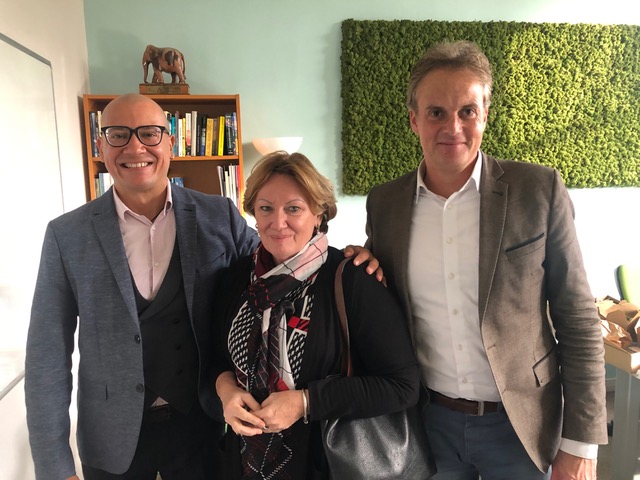Dutch Caribbean Nature Alliance (DCNA) Chair Hellen van der Wal and Interim Director Tadzio Bervoets recently concluded a working visit to the Netherlands. The primary goal of the visit was to engage and discuss the way forward for the organization and to lobby for increased support for the Nature Conservation Organizations which form DCNA. The Dutch Caribbean Nature Alliance (DCNA) is a nonprofit organization created to protect the natural environment and to promote sustainable management of natural resources on the six Dutch Caribbean islands.
The pristine nature of the Dutch Caribbean contains the richest biodiversity in the Kingdom of the Netherlands. The diverse ecosystems are a magnet for tourism and the most important source of income for residents of the islands. Nature on the islands is unique and important but it is also fragile. The lack of sustainable funding, policy support and adequate spatial planning poses the most significant threats to the sustainable development of the islands.
Discussions were held with Member of European Parliament Samira Rafaela (D66), the International Union for the Conservation of Nature Netherlands, Bird Protection Netherlands, the Worldwide Fund for Nature the Netherlands, and representatives from the VU University Amsterdam. Discussions were also held with the Dutch Postcode Lottery, a critical supporter of the Dutch Caribbean Nature Alliance.
Considering that the response to conservation issues in a global environmental crisis and due to the effects of climate change it was emphasized that the park management organizations on all islands of the Dutch Caribbean are at the forefront of this global crises. This will have extra and significant impacts in terms of the biodiversity within the kingdom. However, despite the Caribbean being at the forefront of this crises, parks are structurally under-supported in terms of funding and capacity.
The ensuring of ambitious Dutch policies for Nature and Biodiversity should be extended into the Caribbean Parts of the Kingdom, especially considering the islands’ role as biodiversity hotspots. Taking the above into consideration there is an increased need to put the focus on and communicate the conservation challenges faced by the Dutch Caribbean to policy-makers on both sides of the Atlantic, in particular in The Hague and in Brussels.
The protection and functioning of nature (ecosystems) in multifunctional and multi-use landscapes is critical in terms of how vulnerable and interconnected Caribbean ecosystems are. As small islands whatever happens on terrestrial habitat affects marine habitat. This interconnectivity should be stressed, as should the fact that this is much more evident and much more of an existential threat for small island ecosystems than for those on the continent.
The Aruban National Park Foundation FPNA, STINAPA Bonaire, CARMABI Curaçao, STENEPA St. Eustatius, the Saba Conservation Foundation and the Sint Maarten Nature Foundation comprises the Dutch Caribbean Nature Alliance. q

















